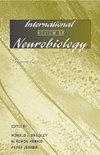What have we learned about the biology of dystonia from deep brain stimulation?
3区 医学
Q2 Medicine
引用次数: 0
Abstract
Deep brain stimulation has dramatically changed the management of patients with dystonia, therapeutic approach of dystonia with marked improvement of dystonia and functional disability. However, despite decades of experience and identification of good prognosis factors, prediction of beneficial effect at the individual level is still a challenge. There is inter-individual variability in therapeutic outcome. Genetic factors are identified but subgroups of patients still have relapse or worsening of dystonia in short or long term. Possible "biological factors" underlying such a difference among patients are discussed, including structural or functional differences including altered plasticity.
我们从深部脑刺激学到了什么关于肌张力障碍的生物学知识?
脑深部电刺激极大地改变了肌张力障碍患者的治疗方法,显著改善了肌张力障碍和功能障碍。然而,尽管有几十年的经验和良好预后因素的确定,在个体水平上预测有益效果仍然是一个挑战。治疗结果存在个体间差异。遗传因素已确定,但亚组患者仍有短期或长期的肌张力障碍复发或恶化。可能的“生物因素”在患者之间的这种差异进行了讨论,包括结构或功能的差异,包括改变可塑性。
本文章由计算机程序翻译,如有差异,请以英文原文为准。
求助全文
约1分钟内获得全文
求助全文
来源期刊

International review of neurobiology
NEUROSCIENCES-
CiteScore
5.90
自引率
0.00%
发文量
75
审稿时长
>12 weeks
期刊介绍:
Published since 1959, International Review of Neurobiology is a well-established series appealing to neuroscientists, clinicians, psychologists, physiologists and pharmacologists. Led by an internationally renowned editorial board, this important serial publishes both eclectic volumes made up of timely reviews and thematic volumes that focus on recent progress in a specific area of neurobiology research.
 求助内容:
求助内容: 应助结果提醒方式:
应助结果提醒方式:


